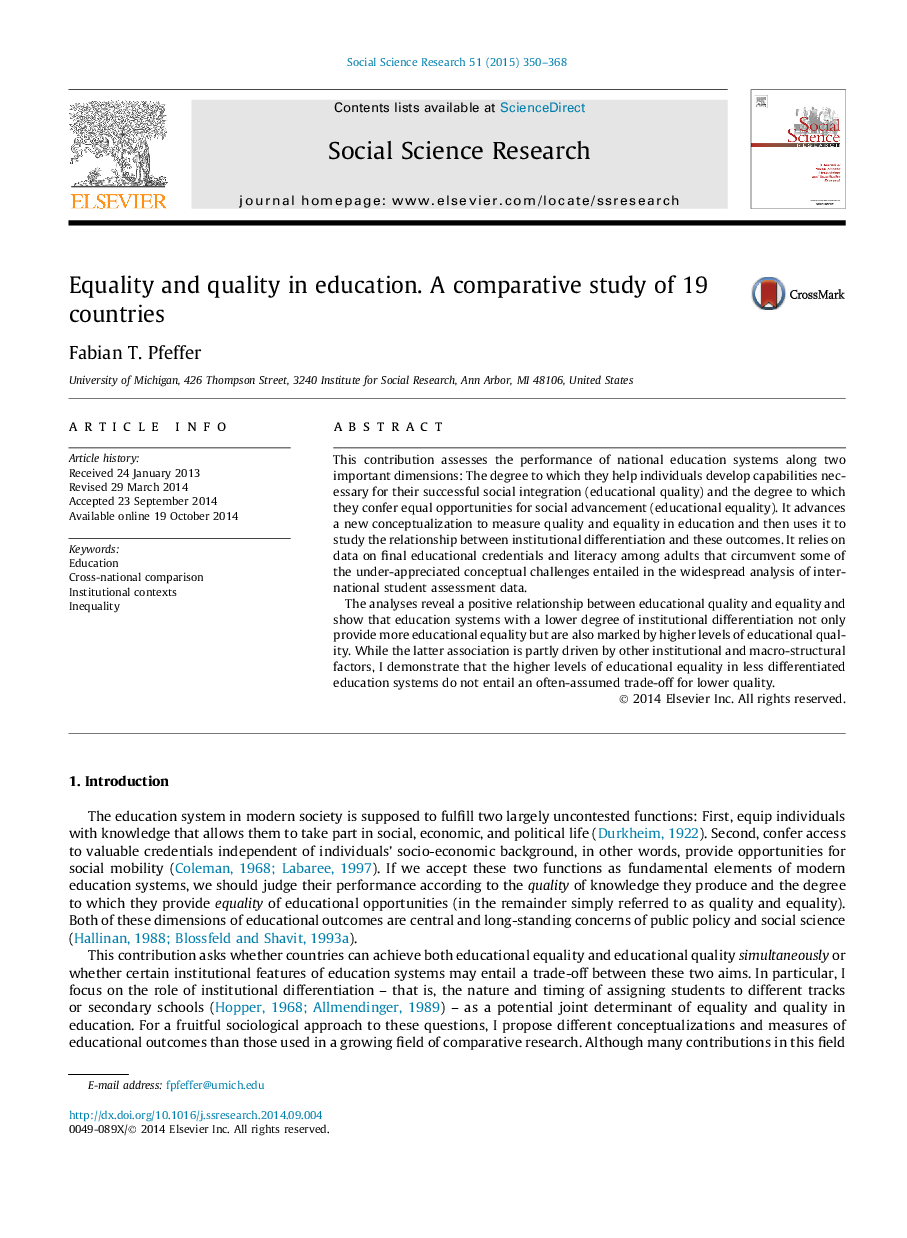| Article ID | Journal | Published Year | Pages | File Type |
|---|---|---|---|---|
| 955755 | Social Science Research | 2015 | 19 Pages |
•There is no tradeoff between national levels of quality and equality in educational outcomes.•Differentiation of the education system is negatively associated with both quality and equality.•Strong vocational systems buffer the negative effect on quality (“compensated differentiation”).•Data on adults circumvent the conceptual challenges involved in using student achievement data.
This contribution assesses the performance of national education systems along two important dimensions: The degree to which they help individuals develop capabilities necessary for their successful social integration (educational quality) and the degree to which they confer equal opportunities for social advancement (educational equality). It advances a new conceptualization to measure quality and equality in education and then uses it to study the relationship between institutional differentiation and these outcomes. It relies on data on final educational credentials and literacy among adults that circumvent some of the under-appreciated conceptual challenges entailed in the widespread analysis of international student assessment data.The analyses reveal a positive relationship between educational quality and equality and show that education systems with a lower degree of institutional differentiation not only provide more educational equality but are also marked by higher levels of educational quality. While the latter association is partly driven by other institutional and macro-structural factors, I demonstrate that the higher levels of educational equality in less differentiated education systems do not entail an often-assumed trade-off for lower quality.
